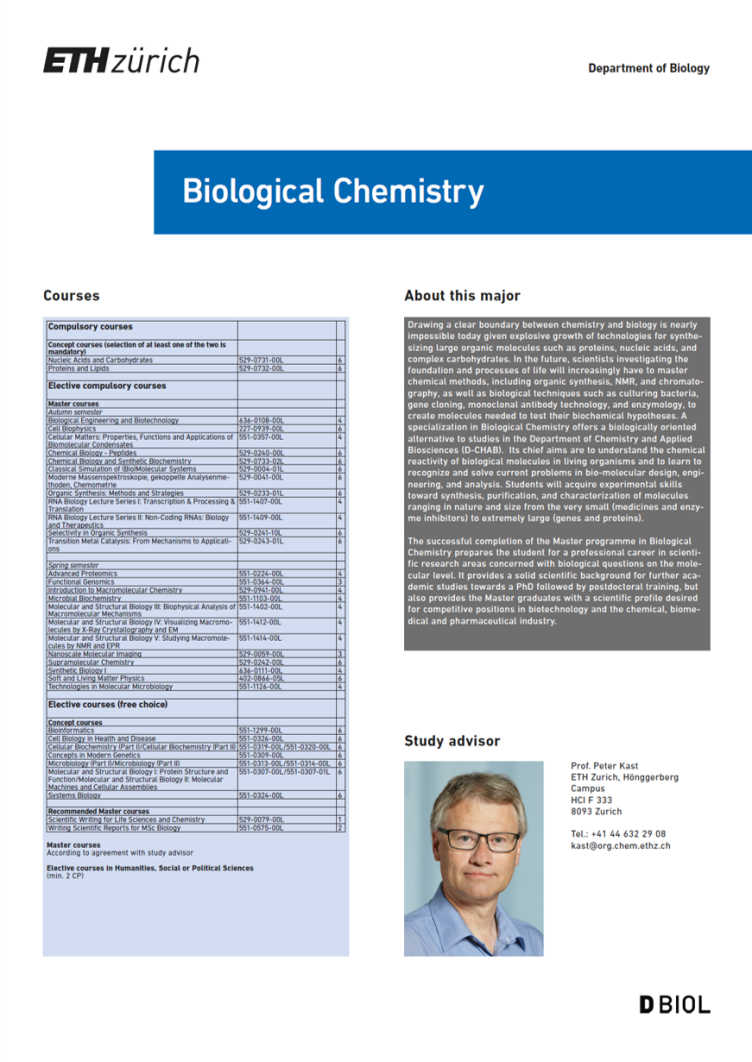Biological Chemistry
Important information
Drawing a clear boundary between chemistry and biology is nearly impossible today given explosive growth of technologies for synthesizing large organic molecules such as proteins, nucleic acids, and complex carbohydrates. In the future, scientists investigating the foundation and processes of life will increasingly have to master chemical methods, including organic synthesis, NMR, and chromatography, and biological techniques such as growing bacteria, gene cloning, monoclonal antibody technology, and enzymology, to create molecules needed to test their biochemical hypotheses.
A specialization in Biological Chemistry offers a biologically oriented alternative to studies in the Department of Chemistry and Applied Biosciences (D-CHAB). Its chief aims are to understand the chemical reactivity of biological molecules in living organisms and to learn to recognize and solve current problems in bio-molecular design, engineering, and analysis.
Students will acquire experimental skills toward synthesis, purification, and characterization of molecules ranging in nature and size from the very small (medicines and enzyme inhibitors) to extremely large (genes and proteins).
Every student's study programme is defined in the learning agreement in myStudies.
- Go to “Functions” -> “Learning agreement”. The compulsory courses are already listed. The compulsory electives and the elective courses can be entered according to the discussion with your major advisor. In the end submit your entries to your major advisor for approval.
- The learning agreement does not have to be complete in the beginning and it can be changed during the course of the study time. All additions and changes have to be approved by your major advisor.
- All compulsory courses are marked with “Yes” in the section “Completion of mandatory courses”.
- Compulsory courses that were done in the ETH Biology Bachelor’s programme have to be marked with “Other programme”.
- In the rare case a compulsory course does not have to be taken with agreement of your major advisor it can be marked with “No”.
- The section “ECTS credits” shows the planned, the needed minimum and the missing CPs in the categories “Compulsory Subjects and Compulsory Electives”, “Electives” and “Research Projects” (not shown Master’s thesis, Master’s exam and GESS-course).
- For the Master’s degree 24 CPs must be acquired in the categories “Compulsory Subjects and Compulsory Electives” and “Electives” whereof at least 18 CPs have to come from the category “Compulsory Subjects and Compulsory Electives”.
- Courses listed in the learning agreement must be registered in myStudies under “Course registration” (no automatic transfer!).If a course is registered, the dot in front of the course’s name in the learning agreement turns green. Without a registration it turns red.
